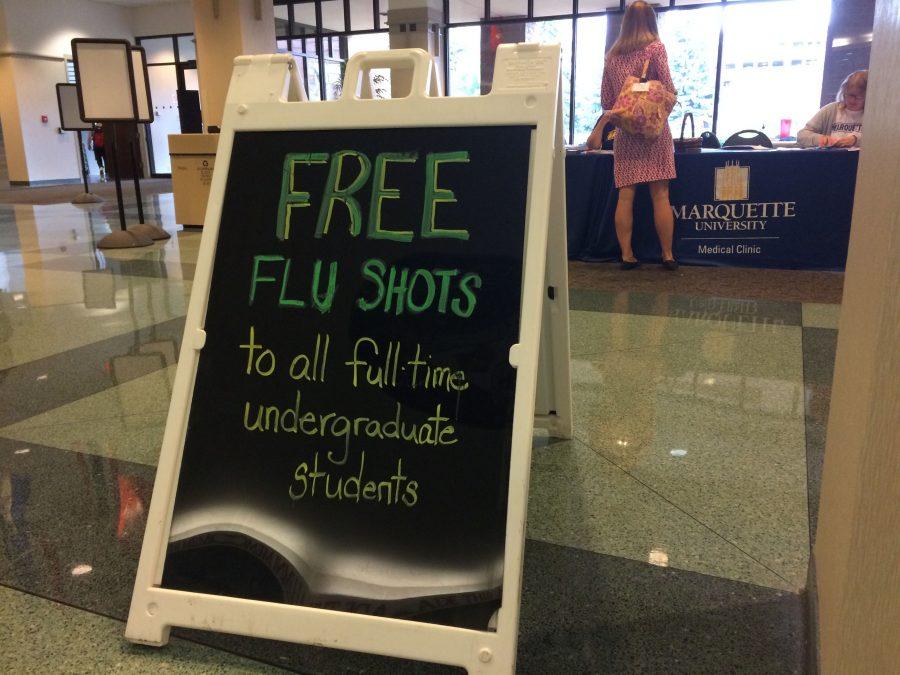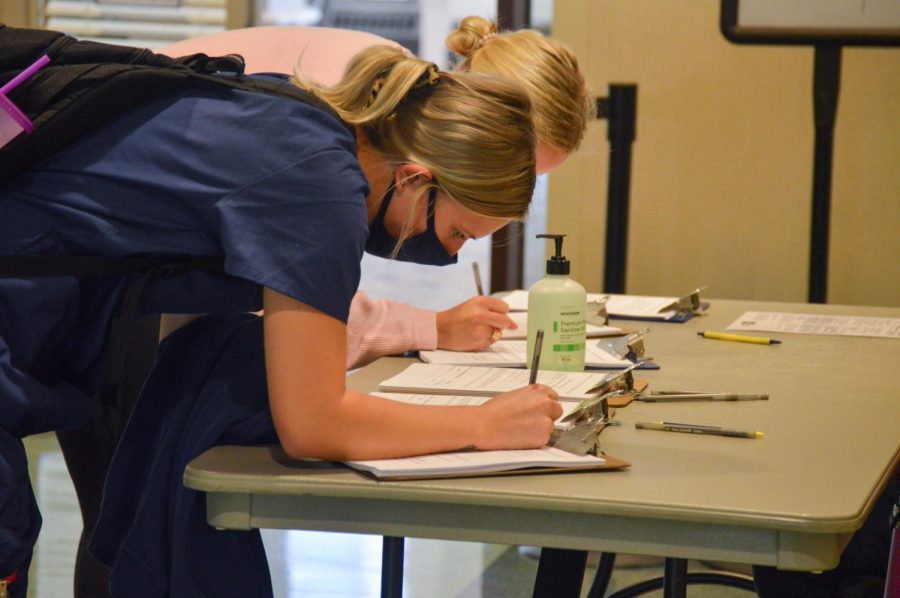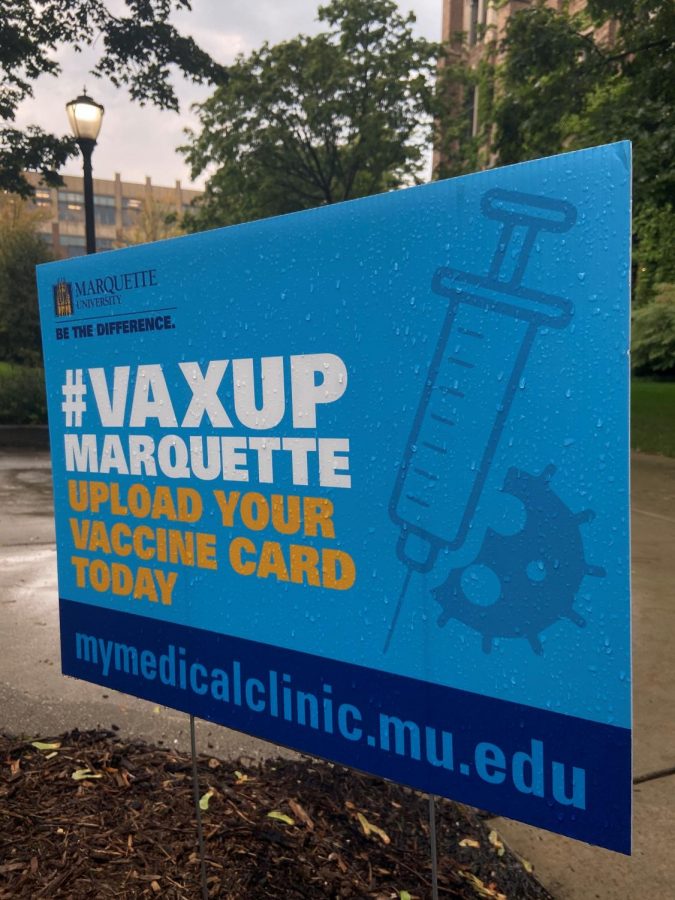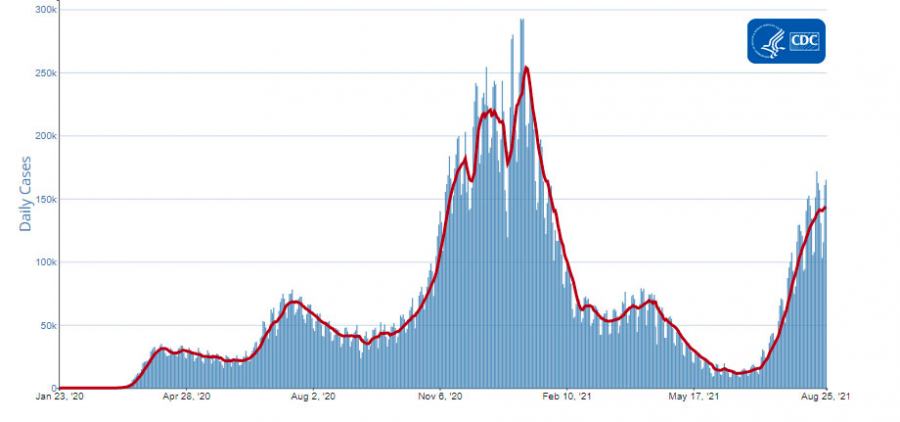Influenza is a serious disease that can hospitalize or even kill a healthy person. According to the Center for Disease Control and Prevention, within the past 31 flu seasons, there have been about 49,000 influenza-related deaths.
This Marquette is offering the flu vaccine free through different clinics around campus for full-time undergraduate students and employees from now until the end of October. For anyone else, a vaccine is $25.
Flu season typically lasts from October to May. A flu vaccine is the best way to protect against the flu and its spread. The vaccines are filled with antibodies that develop in the body for two weeks. These antibodies protect against a potential infection.
Each vaccine is different every year. According to Lynda Connor, a Marquette registered nurse, research is done to determine, what strains of the flu will be most common and the vaccine is (Food and Drug Administration)-approved every season.
According to the CDC, everyone six months and older should get a flu vaccine every season. A vaccine is especially important for people who are at a high risk of complications from the flu due to asthma, extremely low or extremely high body mass indexes, chronic lung and heart disease, metabolism disorders and a weakened immune system due to medication, among other maladies.
A flu vaccine is particularly important for students. “People who live in dorms should especially get the vaccine,” Craig Schutta, a simulation technology specialist in the College of Nursing, said. “Everyone living on top of one another increases your chance of getting infected.”
Some people avoid a flu shot for various reasons, including the claim of getting the flu shortly after receiving a flu vaccine. According to Connor, it takes one to four days to show signs of the flu after exposure. If someone is claiming sickness, the person must have previously been infected from someone else, because it takes two weeks for the flu shot to take effect.
The average person should get a flu shot every season for two reasons. First, the body’s immune response from vaccinations declines over time, so an annual vaccine is needed for the best protection. Second, flu viruses are constantly changing. Consequently, the formulation of the vaccine is reviewed and updated annually.
The goal is herd immunization, which means everyone is protected against the disease, so no one can be infected. “The flu vaccine isn’t just for protecting yourself: it’s for other people, too” Stacia Peiffer-Schneider, a laboratory supervisor in the biology department, said. “The chance of complications is extremely small for someone getting the vaccine. It’s a small risk, but it’s completely worth it.”
Flu clinics will be held:
Wednesday, Sept. 21, from 11 a.m. to 1 p.m., School of Dentristy, 2nd floor
Wednesday, Sept. 28, from 2:30 p.m. to 5:30 p.m., David Straz Atrium
Saturday, Oct. 1, from 11 a.m. to 2 p.m., AMU 254 (Family Weekend)
Wednesday, Oct. 5, from 11 a.m. to 1 p.m., School of Dentristy, 2nd floor
Wednesday, Oct. 12, from 10 a.m. to 2 p.m., AMU 2nd floor lobby
Tuesday, Oct. 18, from 2:30 p.m. to 5:30 p.m., Eckstein Hall lobby
Monday, Oct. 24, from 8 a.m. to 4:30 p.m., AMU 2nd floor lobby (Employee benefits day)











Denise • Sep 20, 2016 at 9:39 pm
I got my flu shot today!